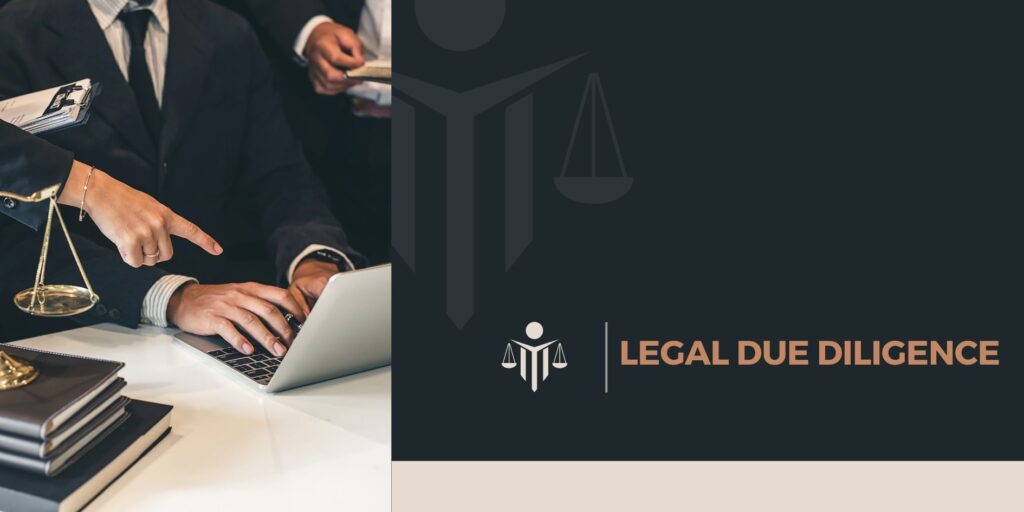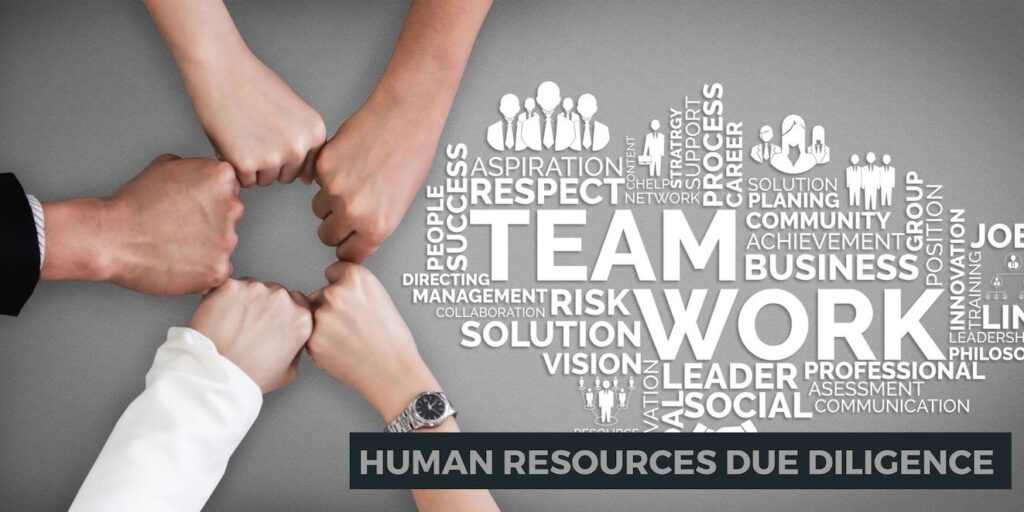Are you considering investing in a new business venture? Or perhaps you’re in the process of acquiring a company? In either case, due diligence is an essential step that cannot be overlooked. But what exactly does due diligence entail, and why is it so crucial?
This comprehensive guide to due diligence in business has got you covered. Whether you’re a seasoned entrepreneur or a first-time investor, this comprehensive resource will provide you with everything you need to know. From understanding the different types of due diligence to mastering the art of financial analysis, I will take you on a journey that will equip you with the knowledge and tools necessary to make informed decisions.

I have managed to sell a business and have been through this process with the buyer in depth.
What is Due Diligence?
Due diligence is a critical process in business that involves conducting a thorough investigation and analysis of a company or investment opportunity before making a decision. It is a way to gather all the necessary information and assess the risks and potential benefits associated with a particular venture. Risk Management is a critical factor for the success of every business. By performing due diligence, you can identify any potential issues, red flags, or hidden risks that may impact the success or profitability of the investment.
Why is Due Diligence Important?
One of the main reasons why due diligence is crucial is that it helps mitigate risks. By conducting a comprehensive examination of the target company’s financials, operations, legal matters, and other key areas, you can uncover any potential risks or liabilities. This allows you to make an informed decision and take appropriate measures to mitigate those risks.
Additionally, due diligence helps uncover any inaccuracies or misrepresentations made by the seller, ensuring that you have accurate and reliable information to base your decision on.
Another important aspect of due diligence is that it helps establish the value of the investment. By analysing the financial statements and conducting a thorough assessment of the company’s assets and liabilities, you can determine its true value. This is particularly important in the case of mergers and acquisitions, where the purchase price is often based on the company’s worth. Without conducting due diligence, you run the risk of overpaying or underestimating the value of the investment.
Due diligence also helps ensure that the business in question adheres to these legal requirements, reducing the likelihood of facing penalties or legal issues in the future.
In summary, due diligence is important because it helps mitigate risks, uncover potential issues, and establish the value of an investment. By conducting a thorough examination and analysis of the target company or investment opportunity, you can make informed decisions and increase the chances of a successful outcome.
Types of Due Diligence in Business
Due diligence in business can encompass various areas depending on the nature of the investment or acquisition. Here are some of the common types of due diligence that are typically performed:

Legal Due Diligence
Legal due diligence involves a comprehensive review of the target company’s legal documents, contracts, licenses, trademarks, permits, and other relevant legal matters. The purpose of legal due diligence is to identify any potential legal risks or liabilities that may impact the investment. This includes assessing the company’s compliance with applicable laws and regulations, reviewing any pending litigation or disputes, and examining the validity of contracts and agreements.
During the legal due diligence process, it is essential to involve legal experts who can provide expertise in specific areas such as intellectual property, employment law, corporate governance, and regulatory compliance. They can help identify any legal issues or risks that may have a significant impact on the investment decision.
Legal due diligence checklist
- Review all relevant contracts and agreements, including customer contracts, supplier agreements, lease agreements, and employment contracts.
- Assess the company’s litigation history and any ongoing or potential legal disputes.
- Evaluate the company’s compliance with applicable laws and regulations, including licensing, permits, and regulatory requirements.
- Review any intellectual property assets, including patents, trademarks, copyrights, and trade secrets.
- Evaluate the adequacy of the company’s legal structure and protections, including corporate governance practices and risk management processes.

Financial Due Diligence
Financial due diligence involves a comprehensive analysis of the target company’s financial statements, records, and financial performance. The purpose of financial due diligence is to assess the company’s financial health, profitability, and viability. This includes reviewing the company’s income statement, balance sheet, cash flow statement, and other financial reports to gain insights into its financial performance and stability.
During the financial due diligence process, it is essential to analyse key financial metrics such as revenue growth, profit margins, cash flow, debt levels, and working capital. This analysis helps identify any financial red flags, such as declining sales, excessive debt, or poor cash flow management. Additionally, financial due diligence involves assessing the accuracy and reliability of the financial statements, ensuring that they are prepared in accordance with applicable accounting standards. Poor financial control and lack of record keeping is the number 4 reason why businesses fail.
Financial due diligence checklist
- Review the company’s financial statements, including income statement, balance sheet, and cash flow statement. EBITDA is a good place to start as it offers valuable insights in the health of a company.
- Assess the company’s revenue sources, expenses, assets, and liabilities.
- Analyse the company’s financial controls, internal audit processes, and risk management practices.
- Review the company’s tax returns and assess its compliance with tax laws and regulations.
- Evaluate the company’s financial performance and stability, including profitability, liquidity, and solvency. Look at their pricing strategies such as penetration pricing or price skimming.

Operational Due Diligence
Operational due diligence involves a comprehensive review of the target company’s operations, processes, and systems. The purpose of operational due diligence is to assess the company’s operational efficiency, scalability, and potential for improvement. This includes evaluating the company’s production processes, supply chain management, distribution channels, and customer service operations.
During the operational due diligence process, it is essential to assess the company’s competitive position, market share, and growth prospects. This analysis helps identify any operational issues or challenges that may impact the company’s ability to deliver products or services effectively. Additionally, operational due diligence involves evaluating the company’s management team, organizational structure, and key personnel to ensure that they have the necessary skills and experience to drive the company’s growth.
Operational due diligence checklist
- Assess the company’s production facilities, including capacity, quality control processes, and efficiency.
- Review the company’s supply chain and distribution network, including relationships with suppliers, distributors, and logistics providers.
- Evaluate the company’s technology infrastructure, including hardware, software, and network systems.
- Analyse the company’s inventory management practices, including inventory levels, turnover, and obsolescence.
- Assess the company’s human resources capabilities, including organizational structure, talent acquisition, and retention strategies.

Human Resources Due Diligence
Human resources due diligence involves a comprehensive review of the target company’s human resources policies, practices, and employee-related matters. The purpose of human resources due diligence is to assess the company’s workforce, talent management strategies, and potential HR-related risks or liabilities. This includes reviewing the company’s employee contracts, benefits plans, performance management systems, and compliance with employment laws. It also includes a look at any shortages of skilled workers that could be seen as a barrier that is difficult to overcome, similar to the barrier to entries.
During the human resources due diligence process, it is essential to assess the company’s employee turnover rates, employee satisfaction levels, and any potential legal disputes or complaints. This analysis helps identify any HR-related issues or challenges that may impact the company’s ability to attract, retain, and develop talent. Additionally, human resources due diligence involves evaluating the company’s culture, leadership style, and diversity and inclusion practices to ensure that they align with your values and objectives.
Human resources due diligence checklist
- Review employee contracts, including terms and conditions of employment, benefits packages, and HR policies.
- Assess the company’s performance management processes, including employee evaluations and career development plans.
- Evaluate the company’s talent acquisition and retention strategies, including recruitment processes and succession planning initiatives.
- Analyse the company’s compliance with labour laws and regulations, including employee rights, health and safety standards, and diversity and inclusion practices.
- Assess the company’s employee satisfaction, engagement, and turnover rates.

Technology Due Diligence
Technology due diligence involves a comprehensive review of the target company’s technology infrastructure, systems, and intellectual property. The purpose of technology due diligence is to assess the company’s technological capabilities, cybersecurity measures, and potential risks or opportunities related to technology. This includes evaluating the company’s IT systems, software applications, data privacy policies, and intellectual property portfolio.
During the technology due diligence process, it is essential to assess the company’s technology roadmap, IT security measures, and any potential vulnerabilities or data breaches. This analysis helps identify any technology-related issues or challenges that may impact the company’s ability to innovate, protect its intellectual property, or maintain data privacy. Additionally, technology due diligence involves evaluating the company’s IT team, their expertise, and their ability to support the company’s technological needs.
Technology due diligence checklist
- Evaluate the company’s IT systems and infrastructure, including hardware, software, and network systems.
- Review the company’s data protection and cybersecurity measures, including data encryption, access controls, and disaster recovery plans.
- Assess the company’s intellectual property assets, including patents, trademarks, copyrights, and trade secrets.
- Evaluate the company’s technology roadmap and innovation capabilities, including R&D investments and partnerships.
- Analyse the company’s technology risks and opportunities, including potential disruptions, obsolescence, and scalability issues.
By using this checklist as a guide, you can ensure that you cover all the essential areas when conducting due diligence in business. Remember to adapt the checklist to meet the specific requirements of your transaction and seek professional advice as needed to ensure a comprehensive evaluation.
Common due diligence mistakes to avoid.
When it comes to due diligence, there are several common mistakes that many people make. These mistakes can have serious consequences and may lead to poor investment decisions. To ensure you don’t fall into the same trap, let’s explore some of the most common due diligence mistakes and how you can avoid them.
Inadequate research:
One of the biggest mistakes in due diligence is failing to conduct thorough research. Many investors rely solely on the information provided by the target company without independently verifying its accuracy. To avoid this mistake, it’s crucial to dig deeper and gather information from various sources. This could include reviewing financial statements, conducting market research, and even speaking with industry experts. By doing your own research, you can gain a more comprehensive understanding of the business and make a more informed decision.
Overlooking legal and regulatory compliance:
Another common mistake is neglecting to review the target company’s legal and regulatory compliance. Failing to identify any legal or regulatory issues can have serious consequences down the line. It’s important to carefully review contracts, licenses, permits, and any pending litigation to ensure the company is operating within the law. Engaging legal professionals to conduct a thorough review can help identify potential risks and liabilities that may impact the success of the investment.
Ignoring cultural fit:
The importance of cultural fit cannot be overstated, yet it is often overlooked during the due diligence process. Assessing the compatibility of the target company’s culture with your own values and objectives is crucial for long-term success. Failure to consider cultural fit may result in clashes between management teams, employee dissatisfaction, and ultimately, a failed investment. To avoid this mistake, spend time getting to know the company’s culture, values, and leadership style. This can be done through site visits, meeting key stakeholders, and engaging with employees at various levels.
Lack of financial analysis:
Due diligence should involve a thorough financial analysis of the target company. This includes reviewing historical financial statements, assessing cash flow, profitability, and identifying any potential financial risks. Some investors make the mistake of relying solely on the company’s current financial performance without considering its future outlook. It’s important to evaluate the company’s growth potential, competitive landscape, and industry trends to determine its long-term viability. Engaging financial experts or conducting a detailed financial analysis yourself can help uncover any hidden risks or opportunities.
Not considering operational risks:
Operational risks are often overlooked during the due diligence process but can significantly impact the success of an investment. These risks include supply chain vulnerabilities, production capacity constraints, reliance on key customers or suppliers, and potential disruptions to the business.To avoid this mistake, it’s important to assess the target company’s operational capabilities, identify any areas of weakness, and develop contingency plans to mitigate potential risks.
By avoiding these common due diligence mistakes, you can significantly improve your chances of making successful investment decisions.
Due diligence challenges & how to overcome them.
While due diligence is a crucial step in the investment process, it can also be challenging. From managing time constraints to navigating complex financial information, there are several obstacles that investors may face. Let’s explore some of the common due diligence challenges and strategies to overcome them.
Time constraints:
Due diligence can be a time-consuming process, especially when dealing with complex transactions or multiple potential investments simultaneously. Time constraints can lead to rushed decisions, inadequate research, and missed opportunities. To overcome this challenge, it’s important to prioritize and allocate sufficient time for due diligence. Develop a clear timeline, delegate tasks to a dedicated team, and establish efficient processes for data collection and analysis. Additionally, consider leveraging technology and automation tools to streamline the due diligence process and save time.
Limited access to information:
Obtaining access to all the necessary information during due diligence can be challenging, especially when dealing with private companies or sensitive data. The target company may be hesitant to disclose certain information or may have limited records available. To overcome this challenge, it’s essential to establish open and transparent communication with the target company. Clearly outline your due diligence requirements, explain the purpose and benefits of the process, and establish confidentiality agreements if necessary. Engage with the company’s management and key stakeholders to gather as much information as possible and consider engaging external experts to fill any knowledge gaps.
Complex financial information:
Financial analysis is a critical component of due diligence, but it can be challenging, especially for those without a strong financial background. Understanding complex financial statements, ratios, and projections requires specialized knowledge and expertise. To overcome this challenge, consider engaging financial experts or consultants who can provide a thorough analysis of the target company’s financial health. They can help interpret financial information, identify potential red flags, and provide insights into the company’s financial performance and prospects.
Assessing intangible assets:
Unlike tangible assets, intangible assets such as intellectual property, brand reputation, and customer relationships can be challenging to evaluate during due diligence. These assets can significantly impact the value and future success of a business. To overcome this challenge, it’s important to conduct a thorough review of intangible assets. This may involve assessing the strength of the company’s intellectual property portfolio, analysing customer feedback and satisfaction levels, and evaluating the effectiveness of marketing and branding strategies. Engaging experts in intellectual property, marketing, and branding can provide valuable insights and ensure a comprehensive evaluation of intangible assets.
Managing emotional biases:
Emotions can play a significant role in the due diligence process, potentially clouding judgment and leading to biased decision-making. Investors may become attached to a particular investment opportunity or be influenced by external factors such as market trends or peer pressure. To overcome emotional biases, it’s important to maintain objectivity and rely on data-driven analysis. Establish clear investment criteria and stick to them throughout the due diligence process. Engage with a diverse team of advisors who can provide different perspectives and challenge assumptions. Conducting a thorough risk analysis and considering worst-case scenarios can also help manage emotional biases and ensure more objective decision-making.
By being aware of these common due diligence challenges and implementing appropriate strategies, investors can navigate the due diligence process more effectively. Prioritizing time, establishing open communication, leveraging financial experts, evaluating intangible assets, and managing emotional biases are all key to overcoming these challenges and making informed investment decisions.
Conclusion
Due diligence is a critical step in the investment process that should not be overlooked. By conducting thorough research, reviewing legal and regulatory compliance, assessing cultural fit, performing a comprehensive financial analysis, and considering operational risks, investors can make more informed decisions.
Despite the challenges that may arise during due diligence, by prioritizing time, establishing open communication, leveraging financial experts, evaluating intangible assets, and managing emotional biases, investors can navigate the process more effectively. Following best practices such as developing a due diligence checklist, engaging a multidisciplinary team, establishing clear objectives and criteria, conducting site visits, and reviewing legal and regulatory compliance can further enhance the due diligence process.

